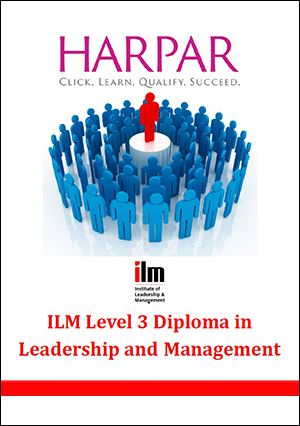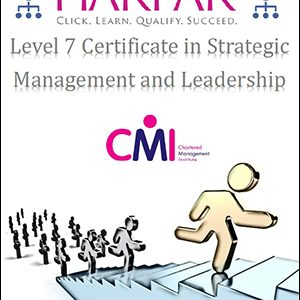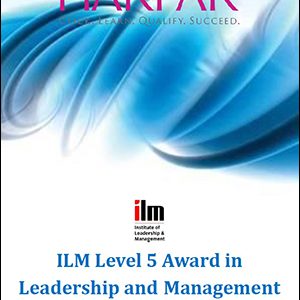Who are these qualifications for?
This qualification is ideal if you have management responsibilities but no formal training, and are serious about developing your abilities. It’s particularly suited to practicing team leaders seeking to move up to the next level of management, and managers who need to lead people through organisational change, budget cuts or other pressures.
Results for you
- Gain a range of key management skills
- Put new skills into practice in your own role
- Build your leadership capabilities
- Motivate and engage teams, manage relationships confidently
- Develop your leadership skills using your own knowledge, values and motivations.
Impact for your employer
- Effective and confident first-line managers
- Better relationships and communication in teams
- Measurable results: workplace-based assessment ensures new skills are effectively transferred to your business
- A broad range of optional units – qualification can be tailored to your organisation’s learning and development needs.
Focus on the skills you need
You can take this qualification as a concise Award, a broader Certificate or a comprehensive Diploma. The units in this qualification fall into seven broad areas. These are:
- core management skills – such as understanding how to organise and delegate
- ability to perform management tasks –manage projects, lead meetings
- team leadership – for example, how to motivate people to improve performance
- change and innovation – plan and manage change, create a culture of innovation
- a full range of communications skills
- managing people and relationships – negotiation, networking, building relationships
- Leadership – understand leadership, use action learning to develop your leadership capabilities.
Work with your employer or training provider to map units to your needs and skills gaps.
What will you learn?
ILM Level 3 Leadership and Management (Module 11)
Module 1 – Understanding leadership
- Understand leadership styles
- Describe the factors that will influence the choice of leadership styles or behaviours in workplace situations
- Explain why these leadership styles or behaviours are likely to have a positive or negative effect on individual and group behaviour
- Understand leadership qualities and review own leadership qualities and potential
- Assess own leadership behaviours and potential in the context of a particular leadership model and own organisation’s working practices and culture, using feedback from others
- Describe appropriate actions to enhance own leadership behaviour in the context of the particular leadership model
Module 2 – Understanding quality management in the workplace
- Understand the importance of quality management within the workplace
- Explain why quality is important to internal and external customers in the workplace
- Explain what is meant by Total Quality Management
- Explain the difference between design quality standards and process quality standards
- Explain the cost of quality in the workplace
- Understand how quality is delivered within the workplace
- Describe a quality system used in the workplace
- Identify quality standards set for the workplace
- Describe tools used to monitor quality in the workplace
- Describe records for maintaining quality in the workplace
- Identify practical and positive steps to improve quality in the workplace
Module 3 – Solving problems and making decisions
- Know how to describe a problem, its nature, scope and impact
- Describe a problem, its nature scope and impact
- Know how to gather and interpret information to solve a problem
- Gather and interpret information to identify possible solutions to a problem
- Prepare a summary of the options providing facts and evidence
- Know how to evaluate options to make a decision
- Apply a simple decision making technique to evaluate options to arrive at the best solution
- Know how to plan, monitor and review the implementation and communication of decisions
- Plan the implementation and communication of the decision
- Describe which monitoring and review techniques could be used to evaluate outcomes
Module 4 – Understanding innovation and change in an organisation
- Understand innovation and change in an organisation
- Explain the benefits of innovation and change for the organisation
- Identify the barriers to change and innovation in the organisation
- Explain practical ways of overcoming these barriers
- Understand how to plan, monitor and review the implementation and communication of innovation and change in an organisation
- Describe which planning, monitoring and review techniques could be used to manage innovation and change
- Explain why communication is important in successful implementation of innovation and change
- Understand the effects of innovation and change on people and teams in an organisation
- Explain possible human effects of innovation and change upon people and teams in an organisation
Module 5 – Understand how to lead effective meetings
- Understand how to prepare and plan a meeting
- Explain the purpose of a meeting
- Explain the purpose and structure of an agenda
- Explain how to select and invite the right people to attend the meeting
- Understand how to manage a meeting
- Explain the roles and responsibilities of the chairperson, the secretary and individuals at a meeting
- Explain basic meeting protocol and procedures
- Explain positive and negative actions that can affect meetings
- Explain the purposes of minutes and action plans
Module 6 – Understanding good practice in workplace coaching
- Understand the context for effective workplace coaching
- Describe and define the purpose of workplace coaching
- Explain the role and responsibilities of an effective workplace coach
- Describe the behaviours and characteristics of an effective workplace coach
- Explain how coaches should contract and manage confidentiality to coach ethically
- Understand the process and content of effective workplace coaching
- Explain how to manage a coaching process agreeing goals and following a simple coaching model
- Explain the range of tools and techniques (including diagnostic tools and those exploring learning preferences) that can be used to support effective coaching
- Explain why it is important to maintain basic records of coaching activity and what these should contain
- Recognise any potential barriers to coaching in the workplace and explain suitable strategies to overcome these barriers
Module 7 – Writing for business
- Know how to write for business
- Produce a piece of business writing for a defined purpose
- Produce a piece of business writing that satisfies an organisation’s business writing conventions
- Use effective and appropriate tone, language and level of formality to meet specified standards when writing for a business purpose
- Incorporate basic statistics and visual material in the content or in an appendix
Module 8 – Understand the role of action learning in developing own leadership capability
- Explain the nature and benefits of action learning
- Explain the responsibilities of an individual within an action learning set or group including confidentiality and respect for others
- Be able to use action learning to plan and monitor the leadership journey
- Identify own leadership strengths and limitations based on an assessment of own leadership behaviours and potential
- Set personal goals for an extended action learning intervention
- Prepare individual action learning plans for involvement in action learning sessions for a minimum of twenty hours
- Complete planned actions to improve leadership
- Be able to review effectiveness of action learning in the development of own leadership capability
- Use feedback from others and own personal reflections to review the effectiveness of action learning undertaken
- Identify follow up actions required to continue the leadership journey
- Recognise any potential barriers to coaching in the workplace and explain suitable strategies to overcome these barriers
Module 9 – Understanding the management role to improve management performance
- Understand the specific responsibilities of middle managers in enabling an organisation to achieve its goals
- Describe the goals and objectives of your organisation
- Evaluate the specific responsibilities of middle managers in enabling your organisation to achieve its goals
- Understand how communication and interpersonal skills affect managerial performance in the workplace
- Evaluate how interpersonal and communication skills affect managerial performance
- Evaluate strategies to overcome barriers to effective managerial communication and interpersonal skills
- Be able to assess personal development opportunities to improve own managerial performance
- Assess own knowledge, skills and behaviour, and their effect on own managerial performance
- Identify areas for personal development to improve own managerial performance
- Produce a personal development plan to improve own managerial performance
Module 10 – Managing equality and diversity in own area
- Understand equality and diversity law, legislation and internal policies in relation to own area of responsibility
- Explain the implications of the legal requirements for equality and diversity on own area of responsibility
- Evaluate own organisation’s policies and procedures relating to equality and diversity
- Be able to influence the management of equality and diversity in own area of responsibility
- Evaluate the organisation’s implementation of equality and diversity legal requirements and internal policies
- Make recommendations for improving the management of equality and diversity in own area of responsibility.
Module 11 – Developing people in the workplace
- Understand the importance of promoting personal development
- Assess the potential benefits to the organisation of developing individuals
- Assess the benefits to the individual of personal development
- Be able to plan for an individual’s development
- Evaluate development vehicles in the organisation appropriate to the development needs of the individual
- Develop a plan to meet the identified development needs of an individual
[/x_accordion]
How to gain your certification?
- Work through each of the modules sent to you by Harpar Ltd
- At the end of each module, there will be an assignment
- Complete the assignment with the guidelines provided and send your assignment via email to carol@harpar.com
- Once you have completed all the assignments to the required standard, you will gain your certification.






